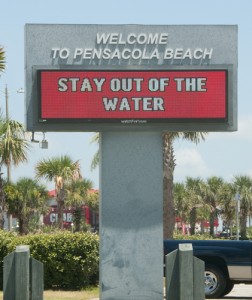Contributed by Scott Moore, ELCA Representative for the Luther Decade and Coordinator of Wittenberg Center Activities.
Warm-up Question
What would it mean to you to give away half of everything you have?
Generosity in Abundance
 Once again in the news, Bill and Melinda Gates and Warren Buffet have upped the ante on what it means to be generous with one’s wealth by inviting their rich peers to take the “giving pledge.” As the home page states, “the Giving Pledge is an effort to invite the wealthiest individuals and families in America to commit to giving the majority of their wealth to the philanthropic causes and charitable organizations of their choice either during their lifetime or after their death.”
Once again in the news, Bill and Melinda Gates and Warren Buffet have upped the ante on what it means to be generous with one’s wealth by inviting their rich peers to take the “giving pledge.” As the home page states, “the Giving Pledge is an effort to invite the wealthiest individuals and families in America to commit to giving the majority of their wealth to the philanthropic causes and charitable organizations of their choice either during their lifetime or after their death.”
The first 40 wealthy individuals or families to take the Giving Pledge are setting an example of generosity when many are much more concerned about their security in uncertain economic times. If you are wondering how much wealth is at stake, here are a couple of statistics. With just the 400 billionaires in the United States alone, there is a net worth of about $1.2 trillion. That means around $600 billion for charity if all 400 took the pledge. 40 of the first approximately 75 people agreed to participate. Their net worth is about $230 billion. One of the richest men, Warren Buffett, has pledged to give more than 99% of his wealth to charity.
This pledge is just beginning. The initiators hope that the number of those willing to share from their wealth will continue to grow.
Discussion Questions
- When was the last time you shared some of your “wealth” where it felt like a sacrifice?
- What does your congregation do with the “wealth” it has?
- What do you get out of sharing from what you have?
- When have you shared your wealth with someone, knowing there would be nothing in it for you?
- To which charity would you or do you give when you share your wealth?
Scripture Texts (NRSV) for Sunday, August 29, 2010 (Fourteenth Sunday after Pentecost)
(Text links are to Oremus Bible Browser. Oremus Bible Browser is not affiliated with or supported by the Evangelical Lutheran Church in America. You can find the calendar of readings for Year C at Lectionary Readings.)
For lectionary humor and insight, check the weekly comic Agnus Day.
Gospel Reflection
Imagine that! Jesus eating, but this time not with ‘sinners,’ as we always like to mention. Instead Jesus is going to a respectable Sabbath dinner at the house of one of the religious leaders in town. But he was being watched to see how he would behave and what he might say. Perhaps, the other guests thought that Jesus only knew how to break bread with ‘sinners’ and ‘undesirables’. Maybe they hoped that Jesus would be an interesting dinner guest. After all, Jesus had just completed his teaching and preaching tour in the villages on his way to Jerusalem where some of the Pharisees warned him to stay away because Herod was after him. Jesus responds that that he will continue doing what he has been doing. (13:32-33)
Just before they all sit down to eat, Jesus takes a moment and heals someone on the Sabbath, with a questioning challenge to those gathered. (14:3)
Now Jesus turns his attention to those gathering guests, jockeying for the best seat at the table. Jesus warns them to be humble and to not assume a higher place so that they might be lifted up. Turning to the host of the dinner Jesus encourages him to not throw a party in hopes of getting something in return. Share your banquet of abundance with those who could never offer anything in return.
In our daily lives, we are surrounded with a “quid pro quo”, “tit for tat” way of surviving. We all know that you have to be savvy and crafty and do favors for those who might be able to help you out in the future. That is how we are taught to survive and succeed in school and business. We like to quote the Golden Rule, “do unto others,” often with the sense of “treat people as you hope to be treated by them.” We love films like Pay it Forward in which the main characters do something good in hope that it will spread, eventually—maybe hopefully—coming back to them.
Even the wealthy do-gooders like Gates and Buffett hope to make society better through education. If we invest in others, then it will eventually be better for all of us. All of this is certainly true, noble, and to be encouraged. Jesus radically suggests that we should share with those who cannot hope to repay us. Share from what we have because we are blessed. Give without expecting anything in return. Jesus’ promise is that there will be a reward of another kind in the time beyond time.
Discussion Questions
- Have you ever felt like you have given and given and it hasn’t changed the person or the situation? How did that affect your attitude toward giving?
- How should we approach giving to those where it seems unlikely that our gift will make an obvious difference (alcoholics, drug addicts, etc.)?
Activity Suggestions
Learning About Local Ministries of Giving
Check out local food/clothing ministries and present the information to participants. Perhaps there is a local chapter of United Way that can help you see what kinds of organizations are near your congregation.
Other nationally based organizations that engage in feeding ministries include (but are not limited to) Bread for the World and ELCA World Hunger Appeal.
If your congregation already supports a local ministry such as a feeding program, food pantry, battered women’s shelter, homeless shelter, or literacy program, perhaps your group can participate by working with that ministry at some point in the near future.
Half of All You Own
Anonymous giving of half of your group’s wealth…
Hand out paper and writing utensils and ask the participants to estimate their “wealth”…the value of all they personally own (how much would they have if they were to sell everything they have for cash) plus cash and savings…then ask them to cut that in half. Collect the sums (without names) and add it all together. See how much money your group could accumulate.
Talk about whether or not they would survive giving half of what they own. What would that look like? How would their lives change? What could they accomplish with their combined wealth?
Discuss whether it is harder or easier to be generous when you are very wealthy.
Closing Prayer
God of grace and abundance, you have blessed your earth with the resources to meet the needs of your whole creation. Grant that we may receive with mindful thanksgiving what you have given us and then generously share it with those in need. We ask this in the name of the one who gave us his life, Jesus Christ our Lord. Amen





